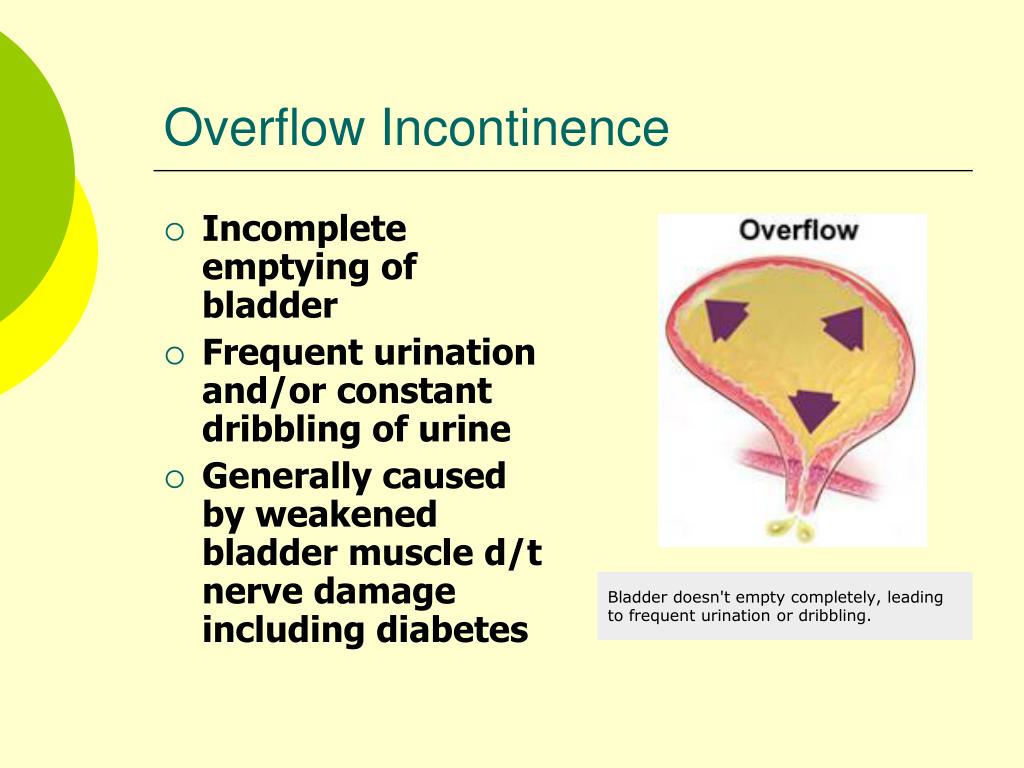


Many women do not do these exercises correctly, even if they believe they are doing them correctly.
#Overflow incontinence how to
Your provider can show you how to do them. Kegel exercises can help strengthen the muscles of your pelvic floor. Bladder retraining helps you gain better control over your bladder. There are many well-designed products that no one else will notice.īladder training and pelvic floor exercises. If you have diabetes, keep your blood sugar under good control.įor urine leaks, wear absorbent pads or undergarments.These include spicy foods, carbonated drinks, and citrus fruits and juices. Avoid foods and drinks that may irritate your bladder.Avoid alcohol and caffeinated drinks such as coffee, which can stimulate your bladder.Smoking also increases your risk for bladder cancer. Quit smoking to reduce coughing and bladder irritation.Keep your bowel movements regular to avoid constipation.You may need to make these changes along with other treatments. These changes may help improve incontinence. There are several treatment approaches for urinary incontinence: Which treatment you get depends on what caused your incontinence and what type you have. If you have symptoms of incontinence, see your health care provider for tests and a treatment plan. This can be caused by prostate surgery in men, or surgery to the vagina in women. Weakness of the sphincter, the circle-shaped muscles that open and close the bladder.This may be caused by pregnancy and delivery. Pelvic prolapse in women - falling or sliding of the bladder, urethra, or rectum into the vagina.Nerve or muscle damage after radiation treatment to the pelvis.Nervous system conditions, such as multiple sclerosis or stroke.Urinary tract infection or inflammation.Stool impaction from severe constipation, which causes pressure on the bladder.Certain medicines (such as diuretics, antidepressants, tranquilizers, some cough and cold remedies, and antihistamines).Bedrest - such as when you are recovering from surgery.Causes of sudden or temporary incontinence include: Incontinence may be sudden and go away after a short period of time. Weakness of the pelvic or urethral muscles.Dementia or other mental health problems that make it hard to feel and respond to the urge to urinate.


 0 kommentar(er)
0 kommentar(er)
